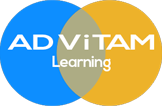Description
Knowledge Management | Intermediate Level | Online Training Course | CPDUK Accredited | Instant Course Access | Includes Assessment & Certificate | Instant Certificate Download.
Welcome to our online Knowledge Management training course. All our online training courses, programmes and qualifications are accredited by the CPD Certification Service (CPDUK).
The Encarta Dictionary defines knowledge management as the organisation of intellectual resources and information systems within a business environment. Sounds pretty simple, right? Take a moment, though, and think about all the information that each person has in their brain. That’s a lot of knowledge!
Our online Knowledge Management course will give learners the tools that they will need to begin implementing knowledge management in the organisation, no matter what the size of the company or the budget. Wherever humans are working together for one goal, there is knowledge to be harvested, stored, and dispensed as needed.
Certificate duration: 2 years
Entry requirements: No entry restrictions
Recommended prerequisites: N/A
Assessment type: End of course assessment
Assessment pass mark – 80% needed to pass and gain a CPD certificate
Cost(s) of assessment and certification – All costs included in the course price
Awarding/Accrediting body – CPD Certification Service (CPDUK)
Who is the course for?
This online Knowledge Management training course is suitable for those who want to know more about knowledge management.
What is covered in this course?
This online Knowledge Management training course includes the following:
- Module One: Getting Started
- Module Two: Understanding Knowledge Management
- Module Three: Dos and Don’ts
- Module Four: The Knowledge Management Life Cycle
- Module Five: The New Knowledge Management Paradigm
- Module Six: Knowledge Management Models
- Module Seven: Building a Knowledge Management Rationale
- Module Eight: Customizing Knowledge Management Definitions
- Module Nine: Implementing Knowledge Management in Your Organization
- Module Ten: Tips for Success
- Module Eleven: Advanced Topics
- Module Twelve: Wrapping Up
Course aims
This comprehensive online Knowledge Management training course will give participants the tools that they will need to begin implementing knowledge management in their organisations, no matter what the size of the company or the budget. Wherever humans are working together for one goal, there is knowledge to be harvested, stored, and dispensed as needed.
Learning outcomes
The learning outcomes of this online Knowledge Management course are to:
- Understand the basic concept of knowledge management
- Identify the do’s and don’ts of knowledge management
- Identify the knowledge management live cycle
- Identify the new knowledge management paradigm
- Identify the knowledge management models
- Understand how to build knowledge management rationale for your company
- Understand how to customise knowledge management definitions
- Identify the steps to implementing knowledge management in your organisation
- Identify tips for success
- Understand the advanced topics in knowledge management.
What is knowledge management?
“Knowledge management is the process of creating, sharing, using and managing the knowledge and information of an organisation. It refers to a multidisciplinary approach to achieving organisational objectives by making the best use of knowledge”
Why is this online Knowledge Management training course essential?
We live in a knowledge economy, thus making knowledge one of the modern company’s most valuable assets.
So how important is knowledge management? Consider these statistics:
- It’s estimated that poor knowledge-sharing practices cost Fortune 500 companies $31.5 billion annually, and
- Seventy-four per cent of organisations estimate that effective knowledge management disciplines increase company productivity by 10-40 per cent.
Given the importance of knowledge to efficiency and productivity, organisations must manage their knowledge effectively.
Knowledge management is any system that helps people in an organisation share, access, and update business knowledge and information.
The statistics cited above highlight that knowledge is one of the organisation’s most valuable assets. As you will see, knowledge is frequently undocumented, challenging to access, and at risk of disappearing.








